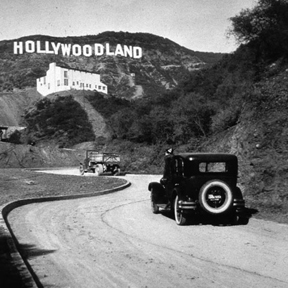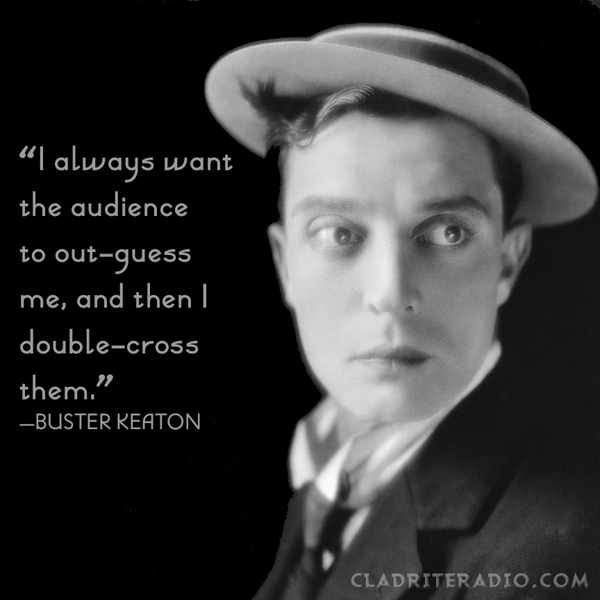The great Roy Smeck, born on this date in 1900, is widely remembered today as a master of the ukulele, but he could play just about anything with strings on it, as evidenced by the following video. Happy birthday, Roy.
Month: February 2014
365 Nights in Hollywood: Stealing Cupid’s Stuff, Pt. 1
Jimmy Starr began his career in Hollywood in the 1920s, writing the intertitles for silent shorts for producers such as Mack Sennett, the Christie Film Company, and Educational Films Corporation, among others. He also toiled as a gossip and film columnist for the Los Angeles Record in the 1920s and from 1930-1962 for the L.A. Herald-Express.
Starr was also a published author. In the 1940s, he penned a trio of mystery novels, the best known of which, The Corpse Came C.O.D., was made into a movie.
In 1926, Starr authored 365 Nights in Hollywood, a collection of short stories about Hollywood. It was published in a limited edition of 1000, each one signed and numbered by the author, by the David Graham Fischer Corporation, which seems to have been a very small (possibly even a vanity) press.
Here’s Part 1 of “Stealing Cupid’s Stuff,” a not-so-short story from that 1926 collection.
STEALING CUPID’S STUFF
Pop Ewing, sixty but full of pep, sat alone on the mourner’s bench in the casting office of Peerless Pictures, Inc. It was early—too early for struggling actors to arise and start their daily walks from studio to studio. It had not been like this three years ago; there was much work then.
Pop gazed at the heavily rouged young person behind the little barred window. There was the person who played the important role of Fate in the actor’s drama of life. She could say: “yeh, there’s a week’s work for you.” Or, “Nope—nothing doin’ this week.”
Pop sighed as he shifted his gaze ceilingward.
“What’s new, Pop?” she asked, poking her fluffy bobbed head through the window.
Pop straightened up a bit.
“Oh, the press agent’s wise crack, I guess.”
She laughed, displaying two rows of perfect, pearlyl-white teeth.
Pop was sore at Broadway. It had turned him down after he had made it laugh and forget its sorrows for twenty years. He had made a great name for himself in the old days; then came the flop, as he called it, and he was out for good. When managers ceased to greet him with a smile, and dinners at the club were no longer in his honor, he knew that Broadway’s curtain was down for him and his show was over; his act through—forever!
Pop declared he would not leave the old Street flat—like it had left him. And so he lingered along, hoping for something to turn up. But nothing did. He had been what is called a “Wise one” in his day, and his bank account was large. And then, too, he had made some splendid investments. Why should he care? But he did care; he was an actor, and “once an actor . . . “
“Anything gonna be comin’ up today, Flo?” he asked anxiously, walking up and down the long room.
“Not a thing so far, old dear.”
Flo was admiring the old actor. He had not been such a handsome young man, but he was very good looking for an old fellow, she thought. He was of medium height, slightly stout, had a pleasant, ruddy face, kind eyes that twinkled when he smiled (and he nearly always smiled). He wore his clothes—good clothes—to advantage.
“Were you ever married, Pop?”
“Nope; Cupid did a lot of shooting, but his aim was poor.”
Flo laughed again in a clear, refreshing voice.
“Say, how come a pretty girl like you to be doing this office work? Why aren’t you out on the stage grabbin’ a flock of close-ups in a mellerdrama?”
“Well, you have to be an actress or have a pull with the big boss. I’m not an actress, and this is as far as my pull would go.” Flo sighed sadly after this.
Pop sat down again.
“What a life!” he said.


